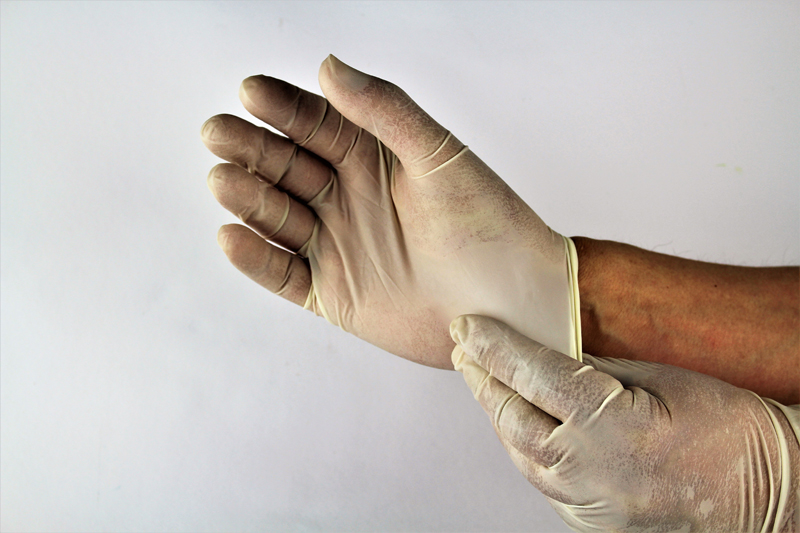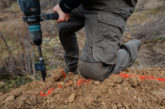
PHPI finds out Swarfega’s take on the risks associated with disposable gloves.
Sore, dry and itchy skin. It may be something you’re familiar with as a plumber. Perhaps more so than other trades, grime and dirt builds up particularly easily, and exposure to contaminants is rife. This can be particularly harmful to the skin, which is why occupational skin disorders (OSDs) are so prevalent in the plumbing and heating industry. But just how common are they?
According to the European Agency for Safety and Health at Work, dermatitis is thought to affect 1 in 10 workers. Despite this, irritated and dry hands tend to be viewed as part of the job, but the truth is that OSDs can cause problems which make even routine manual tasks a challenge. The estimated costs of OSDs in the EU is in excess of £500m per year, with around 3 million lost working days annually.
To battle against skin disorders, many plumbing engineers now reach for disposable gloves as their primary method of protecting their hands from harmful chemicals and germs present in the working environment. Although these gloves physically prevent contaminants contacting the skin, they do not prevent OSDs developing whilst being worn; in actual fact, they may exacerbate them. Workers can often remove the protective gloves at the end of the day, only to find their hands in less than perfect condition.
You may end up with sore, cracked fingers and hands, along with other symptoms of painful OSDs, which can restrict hand mobility and the ability to carry out everyday workplace activities, such as gripping tools or operating machinery. Simple tasks around the home, such as making a cup of tea, opening jars, and even turning taps can become an impossible or stressful challenge, putting strain on social and family relationships.
So why is this the case? As we mentioned before, gloves do physically prevent the skin from contacting potential contaminants, and so are often part of the solution.
When they are worn for long periods of time, however, this physical barrier can also be the cause of some serious skin complaints. Under normal circumstances, moisture passes through the skin and into the environment, and in doing so helps to regulate the temperature of the body. When wearing disposable gloves, this moisture is trapped against the skin and can cause it to soften and become wrinkled, much like after a long soak in water. This can weaken the skin and, if this happens regularly, can cause painful disorders such as those noted above.
Gloves can also trap bacteria against the skin in a warm, moist environment that is ideal for their growth. If there are any small cuts on present on the skin under the gloves, these cuts can quickly become painfully infected and can impact on the person’s ability to work safely.
An independent study commissioned by Deb, a brand of SC Johnson Professional along with Swarfega, found that people who regularly wear gloves in the workplace experienced a variety of issues. The majority (74%) found perspiration inside the glove, half of respondents found them uncomfortable, and just under half reported damaged/cracked hands. A further 44% reported a foul odour, and 40% experienced an allergic reaction.
Avoiding these nasty after-effects is possible with a proactive approach. Treating skin care as part of everyday working life is important and can be integrated with the use of disposable gloves. Taking these steps, OSDs can be prevented before they become a problem.
Swarfega recommends the following steps when using disposable gloves:
- Apply protection cream to the skin before putting the gloves on, as this will help keep the skin strong under gloves.
- Remove the gloves regularly and allow the skin to dry out.
- Use a suitable hand washing product – if the skin isn’t heavily soiled, do not use a harsh hand wash as this can cause damage to the skin.
- Reapply protection cream before putting a fresh pair of gloves on.
- When finishing a shift and after washing the hands, use an after-work moisturising gel to nourish and condition the skin, improve its strength and prevent it becoming dry or damaged.
- Avoid re-using disposable gloves.












